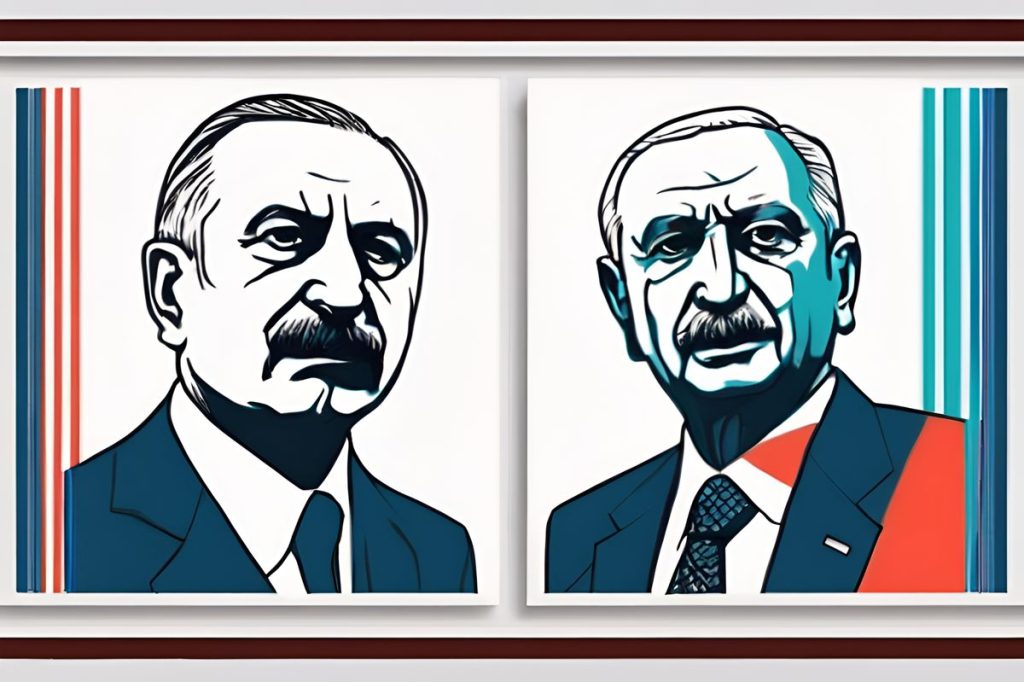Turkish Cypriot leaders back Erdogan against Israel due to his critique of Israel’s actions in Gaza, opposing what they see as aggressive policies. The alignment reflects regional alliances shaped by historical conflicts, showcasing Erdogan’s assertive foreign policy in the face of international controversies.
Why are Turkish Cypriot leaders supporting Erdogan amid the Israel controversy?
Turkish Cypriot leaders are backing Erdogan against Israel due to his assertiveness in foreign policy, exemplified by his critique of Israel’s actions in Gaza. They oppose what they view as Israel’s aggressive policies and genocidal operations, standing with Erdogan’s support for the oppressed and reflecting regional alliances shaped by historical ties and conflicts.
Diplomatic Tensions Escalate
Turkish Cypriot political leaders are showing their support for Turkish President Recep Tayyip Erdogan amidst a growing diplomatic conflict with Israel. This alignment comes in the wake of Erdogan’s stern warning to Israel concerning its actions in Gaza. He had stated on a Sunday night that strength is necessary to prevent Israel from “doing these ridiculous things to Palestine,” referencing Turkish military involvements in Karabakh and Libya as examples of Turkey’s assertive foreign policy.
The tension between Turkey and Israel has been further inflamed by a controversial social media post from Israeli Foreign Minister Israel Katz. He compared Erdogan to Saddam Hussein and implied a threat, suggesting Erdogan should remember the outcome of similar situations historically. This comparison did not sit well with the Turkish side, prompting a strong response from the Turkish Cypriot leadership.
Turkish Cypriot Leaders Rally in Defense
Ersin Tatar, the Turkish Cypriot leader, engaged in a phone call with Erdogan to denounce what he termed as Katz’s “targeting of Erdogan” and to reiterate his support for Erdogan’s stance on Gaza. Tatar emphasized that Erdogan consistently supports the oppressed and opposes the oppressors. He further criticized Israel’s operations in Gaza, describing them as a “genocidal operation.”
This assertive defense of Erdogan by Tatar followed his earlier condemnation of Katz’s social media post. Tatar expressed his disapproval of what he views as attempts by Israel to deflect from its own actions by targeting Erdogan. He urged the international community to take a stand against what he perceives as Israel’s continuous crimes against humanity in Gaza.
In a similar vein, other high-profile Turkish Cypriot officials expressed their disapproval. The ‘prime minister’ Unal Ustel described Katz’s comments as undiplomatic and a reflection of an attitude that shows no hesitation in harming children in Gaza. The ‘parliamentary speaker’ Zorlu Tore also voiced his confidence that Israeli officials would eventually be held accountable for their actions.
Regional Implications and Relations
The alignment of Turkish Cypriots with Erdogan reflects the broader geopolitics of the region, where alliances are often shaped by historical ties and ongoing conflicts. Turkey’s role as a regional power and its involvement in areas like Karabakh and Libya underscore its readiness to assert its influence, which echoes in the sentiments expressed by the Turkish Cypriot leadership.
These recent events highlight the complexities and the charged atmosphere within the Eastern Mediterranean and Middle Eastern regions, where longstanding issues like the Israeli-Palestinian conflict continue to fuel tensions. The reactions from Turkish Cypriot leaders, much like Erdogan’s rhetoric, suggest a firm stance against what they see as Israel’s aggressive policies in Gaza, further adding layers to the multifaceted regional dynamics.
As this situation develops, it serves as a reminder of the intricate web of political, military, and diplomatic considerations that influence relations in this part of the world. The Turkish Cypriot support for Erdogan in the face of this diplomatic spat with Israel is a testament to the enduring alliances and shared political agendas that extend across borders in the region.
Why are Turkish Cypriot leaders supporting Erdogan amid the Israel controversy?
Turkish Cypriot leaders are backing Erdogan against Israel due to his assertiveness in foreign policy, exemplified by his critique of Israel’s actions in Gaza. They oppose what they view as Israel’s aggressive policies and genocidal operations, standing with Erdogan’s support for the oppressed and reflecting regional alliances shaped by historical ties and conflicts.
What prompted the diplomatic tensions between Turkey, Turkish Cypriot leaders, and Israel?
The diplomatic tensions escalated following Erdogan’s criticism of Israel’s actions in Gaza, which led to a controversial social media post by Israeli Foreign Minister Israel Katz comparing Erdogan to Saddam Hussein. Turkish Cypriot leaders rallied in defense of Erdogan, denouncing Katz’s comments and reiterating their support for Erdogan’s stance on Gaza, further fueling the tensions between the parties.
How does the alignment of Turkish Cypriot leaders with Erdogan reflect regional dynamics?
The alignment of Turkish Cypriot leaders with Erdogan reflects the broader geopolitics of the region, where alliances are often shaped by historical ties and ongoing conflicts. Turkey’s assertive foreign policy and involvement in various regional issues underscore its influence, which is mirrored in the support shown by the Turkish Cypriot leadership for Erdogan in the face of diplomatic disputes with Israel.
What are the implications of the Turkish Cypriot support for Erdogan in the context of the Israeli-Palestinian conflict?
The Turkish Cypriot support for Erdogan in the context of the Israeli-Palestinian conflict adds complexity to the regional dynamics in the Eastern Mediterranean and Middle East. It highlights the firm stance against what is perceived as Israel’s aggressive policies in Gaza, showcasing the interconnected nature of political, military, and diplomatic considerations in the region.

